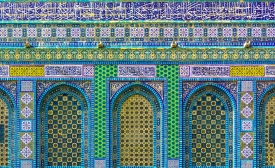soft power
Kazakhstan’s success is a model for the entire region. The overwhelming majority of the population supports the country’s so-called multi-vector foreign policy and Kazakhstan’s ability to brand itself internationally through its support for multilateralism and regional initiatives, stance on denuclearization and its prestige campaigns in the West and Asia.
China and India competed to send aid after Nepal's devastating earthquake. Experts discuss whether the strategy was a boon for China's image there.
In an article Braude wrote for The American Interest in 2014, he explained how China’s Arabic-language television and radio outreach efforts are specifically targeted to niche audiences in Middle Eastern countries that can go on to influence those states’ broader societies to be more pro-Chinese.

This new article by Natalia Grinchev assess the impact that museums can have on public diplomacy programming, social change and even organizational leadership.
The White House is keen to capitalize on Abe`s desire to put Japan back at the center of power in Asia, as China flexes its political and economic muscle. In the Oval Office Obama and Abe will discuss trade and are expected to hail progress toward a Trans-Pacific Partnership that brings together 12 countries -- including Japan and the United States.
As his real estate and entertainment empire expands overseas, Mr. Wang, 60, has emerged as the rare private-sector tycoon in a position to advance Beijing’s interests abroad, with clout in industries and communities around the world.
As one of quake-stricken Nepal’s closest neighbours—sharing a common frontier with road and air connectivity, open borders that do not require visas, besides cultural, language and other commonalities between the two, India was perhaps the best placed to offer succour to Nepal.







